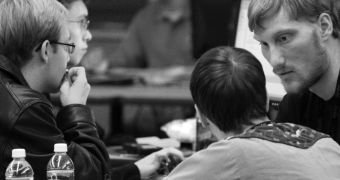While the effects of fatigue on the decisions people make in a specific situation have been widely studied, the same cannot be said for how groups handle themselves in the same scenarios. In a new study, experts prove that teamwork improves decision-making in nearly all situation.
Interestingly, the team behind the new investigation also learned that groups made up of people who are fatigued display better decision-making skills than single fatigued individuals. This is the first time such a connection is established.
There are several key professions in which fatigue is a major problem. Pilots, drivers, doctors, and other similar professionals not only affect other with their decisions, but they need to be constantly on the lookout for threats. This can place a lot of pressure on them.
Among the most common behaviors displayed by tired persons, experts include risk taking and the development of tunnel vision. However, this is not the case when we're talking about a group whose members work together as a team.
“Teams appear to be more highly motivated to perform well, and team members can compare solutions to reach the best decision when they are fatigued. This appears to allow teams to avoid the inflexible thinking experienced by fatigued individuals,” study researcher Daniel Frings, PhD, explains.
He and his team performed a series of investigation on a group of 171 Army officer cadets, and the results are published in tis week's online issue of the American Psychological Association’s renowned Journal of Experimental Psychology: Applied.
During the research, the investigators learned that teams of cadets perform at their highest potential regardless of whether individuals making up those groups were fatigued or not. Cadets who were not included in groups exhibited varying performances, depending on how tired they were.
“Failing to adapt quickly to new situations can be very dangerous in constantly changing environments, such as hospitals and battlefields,” the researchers write in the new journal entry,
“A doctor may misdiagnose a patient if he always connects one group of symptoms with a certain condition rather than considering other possibilities. Military leaders also may overlook potential risks to soldiers if they don’t adapt their thinking to changes on the ground,” they say.
Studies such as this one could set new boundaries for work schedules or maximum workloads people may be subjected to without cracking, PsychCentral reports. This could potentially help save both money and lives.

 14 DAY TRIAL //
14 DAY TRIAL //